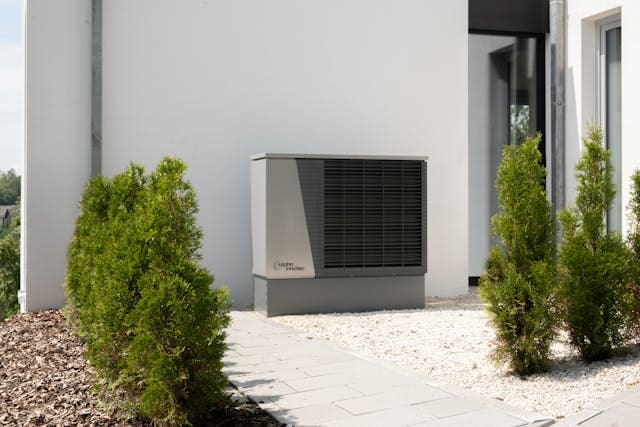Choosing the proper air conditioning system is crucial for beating the summer heat and maintaining comfort. With numerous options available, selecting the perfect AC can seem daunting. Factors like energy efficiency, cooling capacity, and installation requirements must be considered to guarantee the chosen system meets specific needs and preferences.
Additionally, considering the size of the space and the local climate can help narrow down the options. Consulting with a professional for various air conditioner services ensures optimal performance of your cooling system. Investing time in research and expert advice ensures you make a well-informed decision that enhances your home’s comfort and efficiency.
Understanding Different Types of AC Systems
These systems come in various types. The most common ones are central air conditioning, ductless mini-split systems, window units, and portable units. Central air conditioning is ideal for cooling entire homes, providing consistent temperature control through ducts. Ductless mini-split systems offer flexibility, allowing individual room control without ductwork. Window units are compact and fit into window frames, making them suitable for smaller spaces. Portable units offer mobility, making them versatile for temporary cooling needs.
Evaluating Cooling Capacity
Cooling capacity, measured in British Thermal Units (BTUs), determines how effectively an AC system can cool a given space. Selecting an AC unit with the correct cooling capacity is essential; an undersized unit will need help maintaining desired temperatures, whereas an oversized unit will cycle frequently, resulting in inefficiency and increased wear. Room size, ceiling height, insulation quality, and the number of occupants are vital when determining the necessary BTUs for effective cooling. Professional guidance ensures accurate sizing and optimal performance.
Energy Efficiency and Cost Savings
Energy efficiency directly impacts electricity consumption and utility bills. The Seasonal Energy Efficiency Ratio rating measures AC system efficiency, with higher ratings indicating greater efficiency. Investing in a high-SEER unit can lead to long-term savings despite higher upfront costs. Additionally, energy-efficient systems reduce carbon footprints and may include features like programmable thermostats, variable speed compressors, and smart controls, enhancing efficiency and user convenience.
Installation and Maintenance Requirements
Proper installation is critical to air conditioning system performance and longevity. Professional installation ensures correct sizing, positioning, and connection, minimizing refrigerant leaks, electrical problems, and airflow restrictions. Regular maintenance, including filter cleaning or replacement, refrigerant level checks, and component inspections, is essential to maintain efficiency and prevent breakdowns. Central air conditioning systems may require more extensive ductwork maintenance, while ductless systems have more straightforward upkeep needs. Understanding installation and maintenance requirements helps in making an informed decision.
Noise Levels and Indoor Air Quality
Noise levels significantly impact comfort, especially in residential settings. AC systems vary in noise production; central air conditioning tends to be the quietest due to its outdoor compressor unit. Ductless mini-splits and window units may produce more noise, depending on the model and installation. Indoor air quality is also crucial, with modern systems often featuring air purification features like filters and UV lights to reduce allergens, pollutants, and microorganisms. Choosing a system with effective noise reduction and air quality features enhances comfort and health.
Advanced Features and Smart Technology
Advancements in AC technology have introduced features that improve convenience, comfort, and efficiency. Smart thermostats enable remote control and scheduling via smartphone apps, optimizing cooling based on occupancy patterns. Variable speed compressors adjust cooling output to match demand, ensuring consistent temperatures and energy savings. Zoning systems enable independent temperature control in different home areas, catering to individual preferences. These features enhance user experience and contribute to significant energy savings over time.
Cost Considerations and Budgeting
Budget plays a critical role in AC system selection. Initial purchase price, installation costs, and ongoing operational expenses should be considered. Despite their initial higher cost, energy-efficient air conditioning units can result in significant savings on energy bills over time. Various financing options, rebates, and tax incentives to promote energy efficiency can help offset the initial investment. Obtaining estimates from several suppliers and installers to compare pricing and services is recommended, ensuring you get the best value for your investment.
Choosing the right system involves carefully evaluating various air conditioner services. Understanding different types and their features facilitates an informed decision tailored to specific cooling needs and preferences. Investing in a suitable AC system makes it possible to achieve a cool and comfortable indoor environment, even during the hottest summer days.
The New Jersey Digest is a new jersey magazine that has chronicled daily life in the Garden State for over 10 years.
- Staffhttps://thedigestonline.com/author/thedigeststaff/
- Staffhttps://thedigestonline.com/author/thedigeststaff/
- Staffhttps://thedigestonline.com/author/thedigeststaff/
- Staffhttps://thedigestonline.com/author/thedigeststaff/


